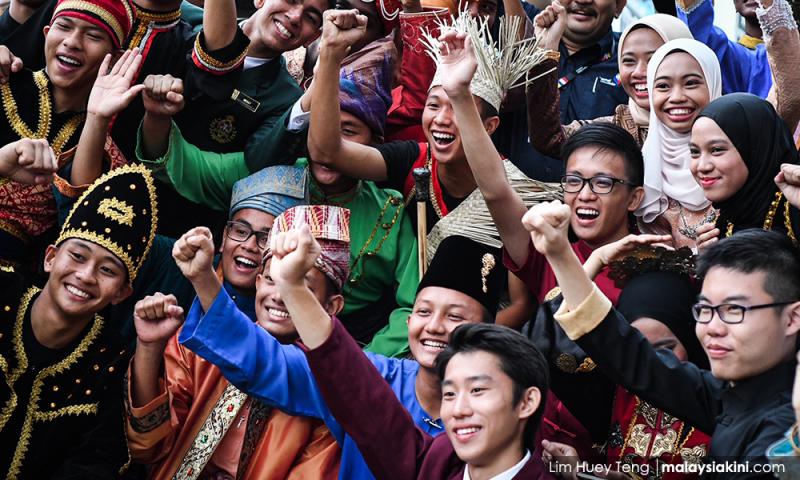LETTER | Racism is a precursor to extremism
LETTER | Pusat Komas organised its 10th National Conference: ‘Racism Sparks Extremism?’ virtually on Jan 14, 2021, with the aim of examining the current status of social cohesion and national harmony in multiracial Malaysia. The conference engaged stakeholders on the topic of racism and examined the extent to which racism perpetuates extremism.
The conference was privileged to have the UN Special Rapporteur on Freedom of Religion or Belief, Ahmed Shaheed to present the keynote address entitled ‘Racial Discrimination as a Precursor to Extremism’.
In Shaheed’s words, "Extremism is about a power grab; it is not about articulating an idea, or a concern, or a view but an action plan to grab onto power so that they can impose determination.
"Extremists reject universal human rights, have no empathy for the rights and content of other people that is people other than their own. They reject diversity and pluralism. Extremists, tend to seek to re-establish what they consider the natural order in society whether based on race, class, faith, ethnic superiority, or alleged tradition."
On that note, Shaheed highlighted that racism should be seen as a precursor to extremism. Racism appears in various aspects of politics, for example, the politics of supremacism. Such politics reject equality and aim to seek domination.
In that process, acts of coercion by far-right parties, militant groups, and religious fundamentalists tend to lead to marginalisation and humiliation of the oppressed. This generates violence. Inevitably, racism and discrimination in politics and political institutions would spark and protract large-scale atrocities and give rise to human rights violations.
Should the government leave racism unchecked, people would then lose trust in the governance of the country and feel inclined to want to assume order and power over others. Sustained discrimination would therefore have detrimental effects on social cohesion and national unity, and impair nation-building attempts.
To that end, efforts are needed to combat the rise of racism in Malaysia; leaving racism unchecked would lead to the rise of extremist tendencies. The following recommendations were proposed:
As citizens of a pluralistic society, we must be able to see beyond racial lines. One must start knowing, interacting, and learning about other ideas and cultures.
The state should endorse and affirm calls for admission that nobody is above the law. Politicians must therefore adhere to strict anti-incitement laws, must inescapably be held accountable, and consciously steer clear of race politics.
To build social cohesion, Shaheed insisted that strong anti-discrimination laws and policies should be absorbed from international frameworks. Open dialogues and debates on various issues must be promoted.
Inclusive development policies benchmarking the UN's sustainable development goals (SDG) is imperative, but cannot be realised if policies support discrimination; and the state must respect fundamental rights and freedoms for all, as it must promote inclusivity, as well as cultural, ethnic, and religious diversity.
On the role of media, it is was recommended that the media should play an active role in achieving positive-peace; and the media should be aware of how their writing becomes a tool for conflict or peace.
On the immediate steps for media consumers to undertake, consumers should keep a level head, remain objective, and avoid temptations alluding to reactionary responses.
The long-term solution, however, necessitates grassroots awareness and mobilisation on the need to eradicate racial discrimination. Empowering the grassroots is key to ameliorating Malaysia’s ethnic-centred political narrative.
Pusat Komas welcomes members of the public to participate in Part 2 of the 10th National Conference on Non-Discrimination, which will convene on Mar 22, 2021. Discourses in the second part will focus on domestic issues pertaining to extremism in Malaysia, racial and religious politics, and the consequences of racial discrimination on society.
RYAN CHUA is the programme director for human rights group Pusat Komas.
The views expressed here are those of the author/contributor and do not necessarily represent the views of Malaysiakini.
RM12.50 / month
- Unlimited access to award-winning journalism
- Comment and share your opinions on all our articles
- Gift interesting stories to your friends
- Tax deductable
